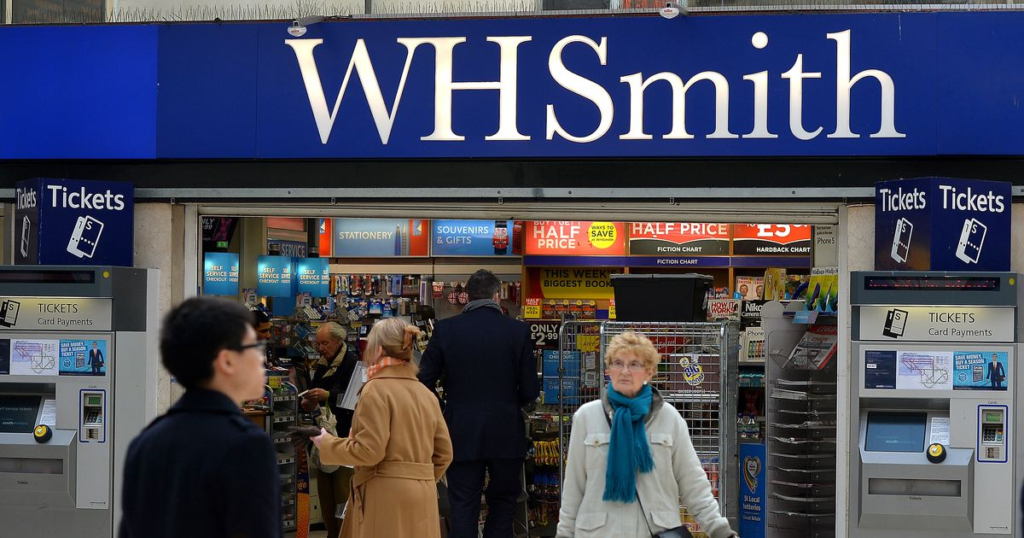
WH Smith is set to sell its more than 230-year-old British high street business to Hobbycraft-owner Modella Capital, a private equity firm for 76 million pounds ($98 million) to focus on global travel retail.
The sale means that the WH Smith name will disappear from British shopping streets as the group’s nearly 500 stores will be renamed TGJones by the new owner, which intends to retain existing products and services, including the Post Office and Toys “R” Us, while gradually adding new product ranges.
The WH Smith brand itself is not part of the sales deal and will remain in use across the group’s international and domestic travel retail sites, including those at airports, train stations and hospitals.
“Given our rapid international growth, now is the right time for a new owner to take the High Street business forward and for the WH Smith leadership team to focus exclusively on our Travel business,” CEO Carl Cowling said in a statement.
WH Smith’s profitable travel business, which has about 1,200 stores in airports and train stations across 32 countries, has benefited from customers splurging on treats, books and electronics
“Modella Capital believes strongly in the future of the high street, and we are delighted to have the opportunity to take a heritage brand and develop it further in the coming years,” a Modella spokesperson said.
The sale will not include WH Smith’s personalised online greeting card business, funkypigeon.com, for which it will explore strategic options, including a possible sale.
“There will be relief that a buyer has been found to remove what’s been more of a burden than a diversified blessing,” said Susannah Streeter, head of money and markets at Hargreaves Lansdown.
But Streeter said the new branding would take time to resonate with the British consumers, and many would “mourn the loss of a high street brand which has been a hub for shoppers for centuries.”
The British retailer’s shares fell 4% to 1,046 pence by 1013 GMT as WH Smith’s travel business contributed 75% of the group’s revenue and 85% of its trading profit in 2024.
The unit’s revenue rose 7% in the 21-week period to January, while sales at the retailer’s UK business fell due to the country’s inflation-ridden, subdued consumer market.
The policy also supports a progressive dividend aligned with earnings growth, value-enhancing acquisitions in the travel sector, and ongoing share buybacks. The group aims to maintain a strong balance sheet and return to its target leverage range of 0.75 to 1.25 times earnings before interest, taxes, depreciation, and amortisation by the end of August.


